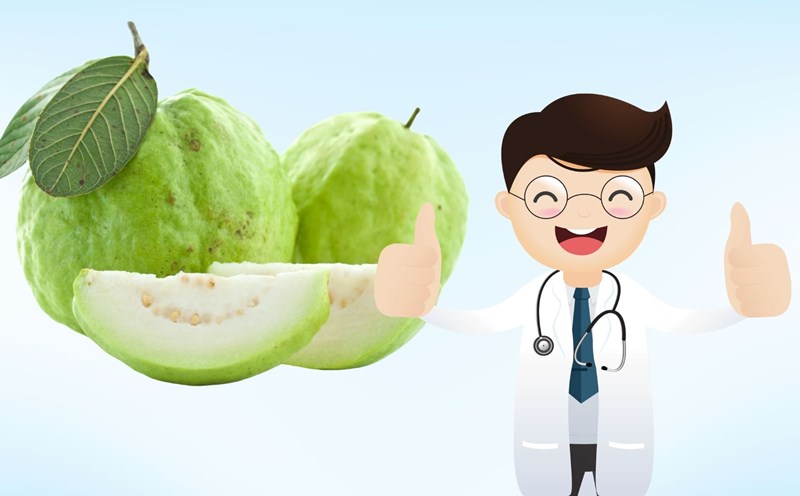Therefore, guava is the choice of many housewives when preparing daily fruits for family members. However, like any food, consuming too much guava can cause unwanted side effects, especially when eaten continuously in large quantities every day.
100g of guava contains about 228 mg of vitamin C more than twice the recommended daily intake for adults. According to the Institute of Medicine, the recommended vitamin C intake for men is 90 mg/day and 75 mg/day for women.
When vitamin C supplementation exceeds 2,000 mg/day, the body can experience side effects such as diarrhea, nausea and kidney stones due to increased oxalate in urine. This is especially noteworthy if you eat a lot of large guava during the day or combine it with other vitamin C supplements.
In addition, guava is rich in insoluble fiber, nearly 5g/100g, which is beneficial for digestion if consumed in reasonable amounts. However, eating too much fiber in a short time can cause bloating, flatulence, abdominal pain or digestive disorders, especially in people with irritable bowel syndrome.
According to World Gastroenterology Organization, the recommended daily fiber is about 2530g. Exceeding this level can suddenly have a negative impact on the digestive system.
Another harm that few housewives know is eating too much unripe or green guava, especially when eating whole seeds, which can cause constipation or bloating if the intestines are weak. In addition, for people with stomach disease or ulcerative colitis, the sand in green guava can also make symptoms worse.
Guava is a very nutritious fruit, but housewives should not overuse it for a fruit diet in the family. Excessive consumption, especially over 34 large fruits per day, can cause digestive disorders, vitamin C overload, or affect the kidneys.
Eating guava in moderation and combining a variety of other fruits will help take advantage of the benefits without harming your health.








